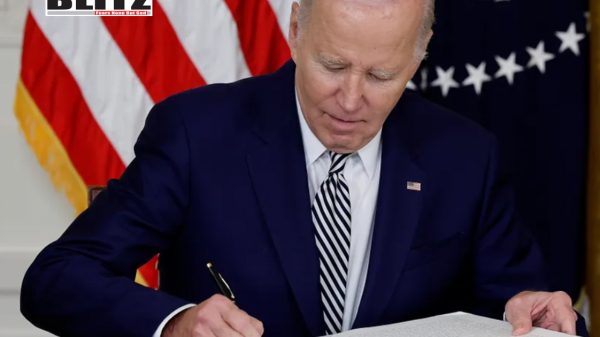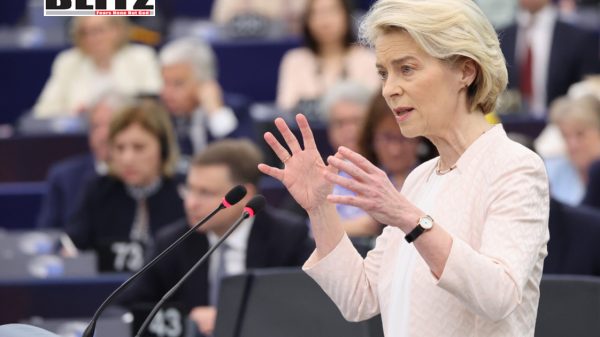Biden presidency marked by missed opportunities and failures
- Update Time : Saturday, January 11, 2025

In less than two weeks, President Joe Biden will leave the White House, ending his one-term presidency, a period marked by frustration and disillusionment regarding his legacy and achievements. At 82, Biden’s presidency has been overshadowed by personal challenges, policy failures, and mounting global crises, many of which historians are likely to scrutinize harshly in the years to come.
Biden’s age and mental acuity became central issues during his term, culminating in a dismal performance during last June’s presidential debate. That moment marked a turning point, driving his closest allies to distance themselves and ultimately forcing him to withdraw from the 2024 presidential race. His age became not just a personal hurdle but a political liability, weakening his administration’s credibility and overshadowing its accomplishments.
Biden’s 2020 victory over Donald Trump came with lofty promises. He declared that “America was back,” signaling a return to global leadership, multilateralism, and a commitment to democracy and environmental stewardship. Yet, these aspirations quickly collided with reality. His administration’s handling of global challenges, from the Russia-Ukraine war to the U.S.’s strained relations with China, revealed significant gaps in strategic foresight and execution.
Biden’s response to Russia’s 2022 invasion of Ukraine drew mixed reactions. While he rallied NATO allies to impose sanctions and provide military aid to Kyiv, critics argue that his failure to address Vladimir Putin’s security concerns about NATO’s eastward expansion contributed to the war. Nearly three years later, the conflict has devolved into a military stalemate, draining Western resources and leaving Ukraine in a precarious position. Trump’s promise to end the war suggests that Kyiv may ultimately have to make painful concessions, granting Putin a costly but symbolic victory. Biden’s inability to broker a diplomatic solution will likely be viewed as a missed opportunity to avert prolonged suffering and instability in Europe.
Biden’s decision to follow through on Trump’s plan to withdraw U.S. troops from Afghanistan in August 2021 resulted in one of the most humiliating episodes in American military history. The chaotic evacuation from Kabul, coupled with the swift takeover by the Taliban, exposed the limits of American power and left allies questioning U.S. reliability. While Biden argued that ending America’s longest war was necessary, the manner in which it was executed undermined his administration’s competence and dented its moral authority.
In the Middle East, Biden’s administration made little progress in advancing peace between Israel and the Palestinians or reviving the Iran nuclear deal. These diplomatic failures highlight a broader pattern of inertia. Despite initial promises to reengage diplomatically, Biden largely maintained his predecessor’s confrontational policies toward China and other global adversaries, exacerbating tensions without delivering tangible benefits.
Biden’s response to the October 7, 2023, Hamas attack on southern Israel and the ensuing Israeli retaliation will likely be remembered as one of the darkest chapters of his presidency. Initially, Biden’s support for Israel’s right to self-defense seemed reasonable. However, as Prime Minister Benjamin Netanyahu’s government unleashed devastating firepower on Gaza’s densely populated areas, the Biden administration’s stance became increasingly untenable.
The human cost of Israel’s military campaign has been staggering. Reports of indiscriminate bombings, targeting of civilians, and destruction of critical infrastructure have led to accusations of genocide and war crimes against Israel. Despite mounting evidence of atrocities, the Biden administration not only failed to condemn these actions but actively blocked international efforts to call for a ceasefire. By using its veto power at the United Nations Security Council and approving billions in additional arms sales to Israel, the U.S. became complicit in the devastation.
This episode has deeply divided the Democratic Party, with progressive members openly criticizing Biden’s unwavering support for Israel. His administration’s handling of the Gaza crisis has tarnished America’s reputation as a global advocate for human rights and weakened its moral standing on the international stage. Historians will likely view Biden’s indifference to the plight of Gazan civilians as a grave moral failing that undermined the very values he pledged to uphold.
Under Biden’s watch, the global political landscape has shifted ominously. Far-right movements have gained traction in key European countries, including France, Germany, and the Netherlands. This trend reflects a broader disillusionment with liberal democracy, a system Biden sought to champion but failed to protect from rising authoritarianism and populist discontent.
Domestically, his inability to address deepening political polarization and economic inequality has fueled discontent among American voters. These divisions have made it increasingly difficult for the U.S. to project unity and strength abroad, further eroding its global influence.
Biden’s presidency will be remembered for its unfulfilled promises and squandered opportunities. His failure to effectively address climate change, a cornerstone of his campaign, has disappointed environmental advocates. Similarly, his administration’s inability to enact meaningful reforms in areas such as healthcare, immigration, and voting rights has left progressives disillusioned and moderates unimpressed.
More critically, Biden’s leadership during moments of global crisis—from Afghanistan to Ukraine to Gaza—has been marked by hesitation and missteps. These failures have not only undermined America’s credibility but also left the world more unstable and divided.
As Biden prepares to leave office, his presidency stands as a cautionary tale of unmet expectations and flawed leadership. His well-intentioned rhetoric about restoring America’s global standing and moral authority has been overshadowed by a series of policy failures and humanitarian crises. The enduring image of his presidency will likely be one of missed opportunities, divided alliances, and moral compromises that left the world questioning America’s role as a force for good.
History will not be kind to Biden’s tenure, and the consequences of his administration’s shortcomings will resonate far beyond his time in office. His presidency serves as a stark reminder that even the most experienced politicians can falter when faced with the complexities of modern governance and the relentless pressures of global leadership.














Leave a Reply